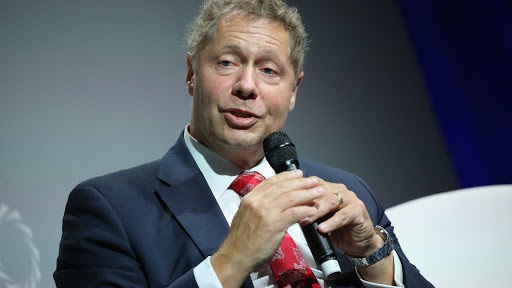The World Health Organisation (WHO) says no fewer than 165 countries have engaged in COVID-19 vaccine global access facility.

WHO said in a statement on Thursday, July 16, 2020 that, of the number, 75 countries have so far shown interest in joining its COVAX facility meant to provide global access to a COVID-19 vaccine.
It said “the 75 countries, which would finance the vaccines from their own public finance budgets, partner with up to 90 lower-income countries that could be supported through voluntary donations to Gavi’s COVAX Advance Market Commitment (AMC).
“Together, this group of 165 countries represent more than 60 per cent of the world’s population. Among the group are representatives from every continent and more than half of the world’s G20 economies.’’
The statement quoted Dr Seth Berkley, the CEO of Gavi, the Vaccine Alliance, as saying: “COVAX is the only truly global solution to the COVID-19 pandemic for majority of countries, whether they can afford to pay for their own doses or require assistance.
“It means receiving a guaranteed share of doses and avoiding being pushed to the back of the queue, as we saw during the H1N1 pandemic a decade ago.
“Even for those countries that are able to secure their own agreements with vaccine manufacturers, this mechanism represents, through its world-leading portfolio of vaccine candidates and means of reducing the risks associated with individual candidates failing to show efficacy or gain licensure.”
The COVAX Facility forms a key part of the COVAX pillar of the Access to COVID-19 Tools (ACT) Accelerator.
It is a ground-breaking global collaboration to accelerate the development, production and equitable access to COVID-19 tests, treatments and vaccines.
COVAX is co-led by Gavi, the Coalition for Epidemic Preparedness Innovations (CEPI) and WHO, working in partnership with developed and developing country vaccine manufacturers.
COVAX aims to accelerate the development and manufacture of COVID-19 vaccines, and to guarantee fair and equitable access for every country in the world.
It will achieve this by sharing the risks associated with vaccine development, investing in manufacturing upfront so vaccines can be deployed at scale as soon as they are proven successful.
It will also pool procurement and purchasing power to achieve sufficient volumes to end the acute phase of the pandemic by 2021.
The statement also quoted Dr Richard Hatchett, the CEO of CEPI, as saying: “this early level of interest represents a tremendous vote of confidence.
“It represents a tremendous vote of confidence on COVAX and our shared goal to protect people around the globe through the fair allocation of a COVID-19 vaccine.
“COVAX offers an innovative solution to the gravest public health crisis in living memory.
“It will speed up the availability of safe and effective vaccines through early investment in manufacturing capacity, and maximise the chances of success by backing a broad and diverse portfolio of vaccine candidates.
“Through COVAX our aspiration is to be able to vaccinate the most vulnerable 20 per cent of the population of every country that participates, regardless of income level, by the end of 2021.
“Ensuring fair access is not only a matter of equity; it is the fastest way to end this pandemic,” Hatchett said.
The goal of COVAX is by the end of 2021 to deliver two billion doses of safe, effective vaccines that have passed regulatory approval and/or WHO prequalification.
These vaccines will be delivered equally to all participating countries, proportional to their populations, initially prioritising healthcare workers then expanding to cover 20 per cent of the population of participating countries.
Further doses will then be made available based on country need, vulnerability and COVID-19 threat.
The COVAX Facility will also maintain a buffer of doses for emergency and humanitarian use, including dealing with severe outbreaks before they spiral out of control.
In same vein, the statement quoted Dr Soumya Swaminathan, WHO Chief Scientist, as saying “the COVID-19 pandemic, like every health crisis, also presents us with opportunities.
“A vaccine that is affordable and accessible to all will help us to address systemic health inequalities.
“We need all countries to support COVAX to achieve this goal and bring an end to the acute phase of the pandemic.”
According to the statement, the success of these efforts will ultimately depend on securing enough funding from governments and commitments from vaccine manufacturers to participate at a scale large enough to deliver a global solution.
By Cecilia Ologunagba
